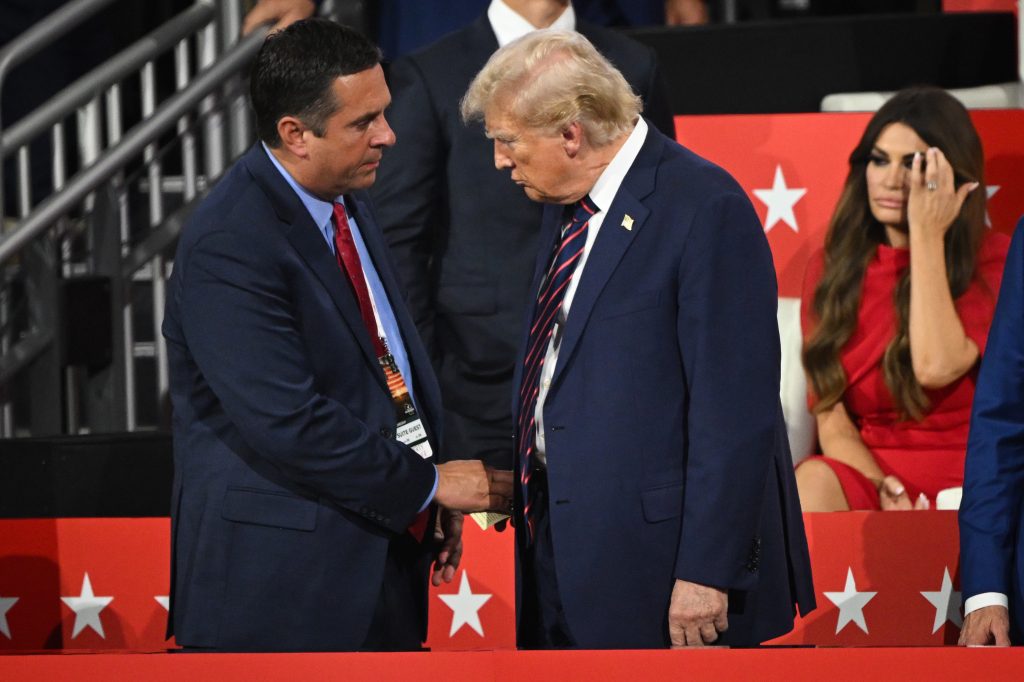The announcement of Richard Grenell and Devin Nunes’ appointments to key positions within a potential second Trump administration signals a return to the familiar dynamics of his first term, marked by staunch loyalty, a confrontational stance towards perceived adversaries, and a prioritization of individuals who share his worldview. Grenell, a seasoned diplomat with a history of unconventional approaches, will serve as presidential envoy for special missions, focusing on complex geopolitical challenges involving nations like Venezuela and North Korea. Nunes, a steadfast Trump ally and former House Intelligence Committee chairman, will lead the President’s Intelligence Advisory Board, tasked with assessing the intelligence community’s performance, a role that carries significant weight in shaping intelligence policy.
Nunes’ appointment is particularly noteworthy given his prominent role in challenging the FBI’s investigation into Russian interference in the 2016 election, an investigation that Trump repeatedly labeled a “hoax.” His selection underscores Trump’s persistent skepticism of the intelligence community and his preference for advisors who share his views. This appointment raises questions about the potential for politicization of intelligence assessments and the future direction of the intelligence community under a second Trump administration. Nunes’ simultaneous role as CEO of Trump Media & Technology Group further blurs the lines between government service and private business interests, raising potential conflicts of interest.
Grenell’s assignment as special envoy draws upon his extensive diplomatic experience, including his roles as U.S. Ambassador to Germany and Acting Director of National Intelligence. His diplomatic style, often described as combative and unconventional, has sometimes strained relationships with traditional allies. His involvement in sensitive diplomatic efforts, such as the negotiations regarding Venezuela’s political future, demonstrates Trump’s trust in his ability to handle complex international situations. His advocacy for a peace deal in Ukraine that would concede autonomous regions to Russian control aligns with Trump’s expressed desire for a negotiated settlement, potentially diverging from current U.S. policy.
Grenell’s appointment, coupled with Trump’s previous consideration of him for Secretary of State and special envoy for the Ukraine war, underscores his significant influence within Trump’s inner circle. His history of diplomatic engagement, particularly in challenging contexts like Venezuela and Germany, suggests a potential shift in U.S. foreign policy towards a more transactional and less multilateral approach. Furthermore, his alignment with Trump’s views on NATO, advocating against expansion and emphasizing defense spending commitments, could signal a reassessment of the U.S.’s role within the alliance.
The selection of both Grenell and Nunes, individuals who have consistently defended Trump and echoed his views, suggests a potential second Trump administration that would prioritize loyalty and shared ideology over traditional qualifications and experience. These appointments signal a potential shift away from established diplomatic norms and intelligence practices, raising concerns about the future direction of U.S. foreign policy and national security strategy. The emphasis on individuals who have publicly questioned the integrity of the intelligence community and advocated for non-traditional diplomatic approaches could lead to significant changes in how the U.S. interacts with the world.
The appointments also highlight Trump’s continued reliance on a close circle of loyalists, a pattern established during his first term. This approach raises questions about the diversity of perspectives within his advisory team and the potential for critical dissent. The selection of individuals with strong pre-existing ties to Trump reinforces the perception of an administration prioritizing personal loyalty over independent expertise. This dynamic could have significant implications for the development and implementation of policy across a range of critical areas, from national security to economic policy. Furthermore, the appointment of individuals with simultaneous roles in the private sector, such as Nunes’ leadership of Trump Media & Technology Group, adds another layer of complexity to the potential for conflicts of interest within a second Trump administration.










